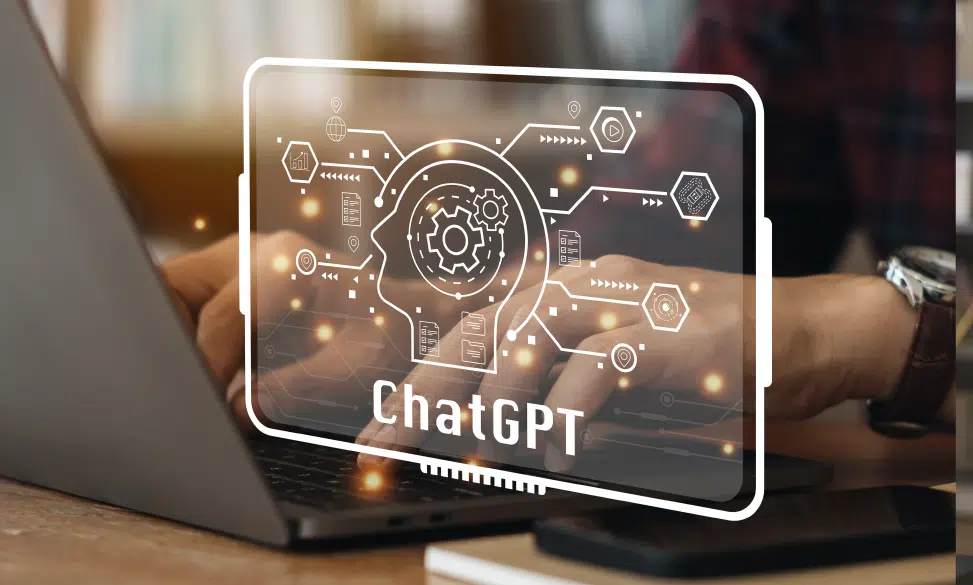The rise of ChatGPT, the cutting-edge chatbot developed by OpenAI, has taken the tech world by storm. Since its launch on November 30, 2022, this AI-powered platform has experienced an unprecedented surge in popularity, capturing the attention of both tech enthusiasts and job seekers alike. In just five days, it achieved a remarkable milestone by attracting one million users. By January, ChatGPT had become the fastest-growing platform in history, boasting a user base of 100 million. To put this achievement into perspective, it took Twitter five years to reach 100 million users, Instagram took 2.5 years, and TikTok took nine months.
The widespread appeal of ChatGPT can be attributed to its versatility and human-like capabilities. Notably, the chatbot achieved impressive scores, ranking in the 90th percentile on both the college-entry SATs and the attorney bar exam. These feats showcase the advanced capabilities of artificial intelligence and have contributed to ChatGPT’s rapid adoption.
Job seekers, in particular, have recognized the potential of ChatGPT to revolutionize their employment journeys. A survey conducted in February by ResumeBuilder.com, which polled 1,000 current and recent job hunters, revealed that nearly half (46%) of respondents have turned to ChatGPT to craft their resumes or cover letters.

The impact of ChatGPT on job seekers has been nothing short of remarkable. A significant 70% of those surveyed reported a higher response rate from companies when using the chatbot in their job applications. Impressively, 78% of candidates who employed ChatGPT successfully secured job interviews. Furthermore, almost six in 10 job hunters found employment after incorporating this AI tool into their application processes.
However, it is essential to acknowledge that there is a small fraction (11%) of job seekers who faced rejection once it became known to hiring companies that they had used ChatGPT in their application materials. This raises important questions about the acceptance of AI-generated content in the job application process and the need for greater transparency.
In response to ChatGPT’s impact, career experts and coaches have begun advising job seekers on how to leverage this powerful tool to gain a competitive advantage. Samantha Foster, an Executive Recruiter, emphasizes the empowerment ChatGPT offers by providing specific answers and helping with tasks beyond basic internet searches. Sweta Regmi, a Career and Resume Strategist, highlights the tool’s ability to streamline job applications and keep candidates organized during the process.
Marti Konstant, a Workforce and Career Agility Trainer, underlines the dual utility of ChatGPT for both job seekers and employers, with AI assisting in tasks such as resume creation and job description drafting. Ruth Sternberg, a Job Search and Resume Writer, suggests various use cases, from conducting job research to developing branding phrases.
Virginia Franco, a LinkedIn and Resume Writer, points out ChatGPT’s ability to compare job histories with job descriptions and translate resumes into other languages, among other functions. Adrienne Tom, an Executive Resume and LinkedIn Profile Writer, sees AI as a valuable tool for interview preparation and outreach, while emphasizing the importance of manual editing.
Shennee Rutt, an Executive Resume Writer and Career Strategist, advises job seekers to be aware of the limitations of AI and to use it as a starting point rather than a complete solution.
While AI tools like ChatGPT offer tremendous potential to job seekers, concerns have emerged about the potential introduction of bias into the job application process. As AI continues to play a growing role in job searching and recruitment, the need for oversight and fairness in AI development becomes increasingly important.
In conclusion, ChatGPT’s meteoric rise and its impact on job seekers illustrate the transformative potential of AI in the employment landscape. As technology continues to evolve, job seekers and experts alike must navigate the fine balance between leveraging AI’s strengths and addressing its limitations to ensure fair and effective job searches in the future.




